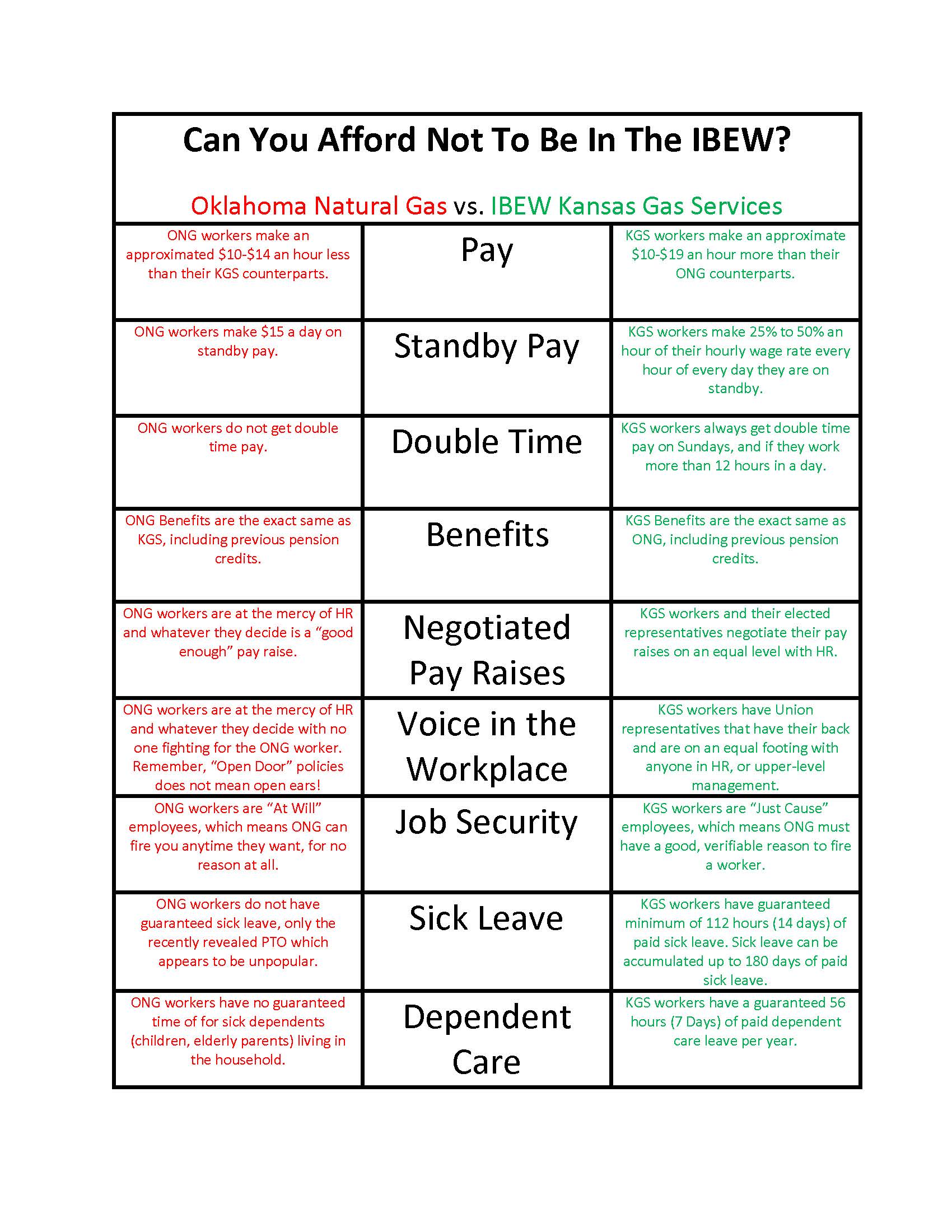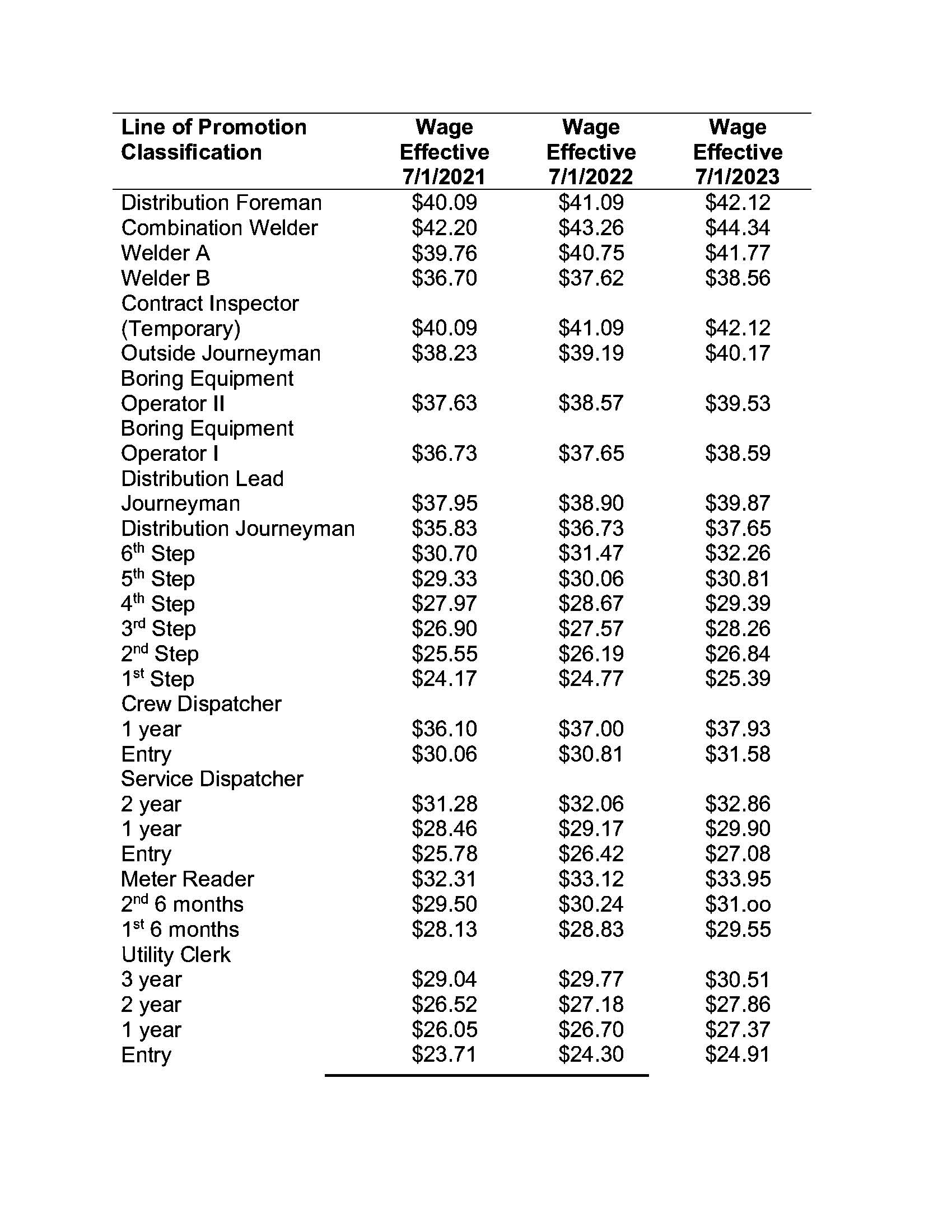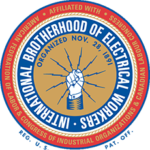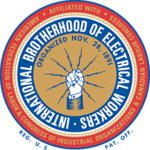Welcome ONG Workers!
Welcome to your ONG Workers Unite organizing website. Why was this website created? Working together with your coworkers, our goal is to communicate with ONG workers, answer any questions you may have about Unions, and form a Union in your workplace. This website is purely for informational purposes so ONG employees have a place to get the information in order to make an informed decision about joining together with their coworkers. This decision can provide a seat at the table for you and your coworkers to be part of the decision-making process for your terms and conditions of employment with ONG.
Why Unions are Important to You
In this video former Secretary of Labor Robert Reich explains the importance of Unions, and why every working American should belong to one.
IBEW And Atlanta Gas Light
Recently Atlanta Gas Light workers were tired of low wages and being asked to do more with less. They reached out to the IBEW to change the dynamics with their employer. The IBEW was able to successfully navigate and win Union representation for these workers!
ONG vs. KGS Comparison Chart

Kansas Gas Services Pay Scale

There are several reasons workers join or form unions.
- At-Will Employment vs. Working under a Collective Bargaining Agreement (CBA) Absent a contract stating otherwise, employees are presumed to be at-will employees. That is, they’re employed at the will of their employer. Their employer unilaterally sets all the terms and conditions of employment, can change them anytime it wants and for any reason it wants. An employee’s only choice is “take-it or leave-it.”
- By contrast, workers who form unions and negotiate a contract with their employer are employed under the terms and conditions of that contract. The employer cannot change the terms and conditions of the contract without the union agreeing to those changes, and is legally bound to honor that contract. The contract between a union and an employer is commonly referred to as the Collective Bargaining Agreement or CBA.
- First, it’s important to recognize that you and your coworkers are forming this union. Using your union to harm your employer would obviously not be in your best interest, and is therefore not something you would do.
- Second, the IBEW is by no means anti-employer. It fully recognizes that employers and employees are co-dependent of each other. When companies prosper it provides opportunities for workers to prosper also.
It’s important to understand that workers don’t hire a union, or bring in a union, they join together with their co-workers to form the union. The reason they do this is because it’s the only means workers have to compel their employer to bargain with them in good faith for a written contract. The IBEW has experienced representatives and negotiators to lead the way, but the issues proposed by the union during negotiations are those the workers themselves bring forward. You’re forming a union to accomplish as a group what you can’t as individuals.
- Union Dues are funds provided by union members to financially support the goals of their organization. such as legal representation, handling grievances, arbitrations, contract negotiations, organizing activities, rents and administrative fees.
- Workers in IBEW organizing campaigns don’t pay any dues whatsoever until the election is won, a first contract has been negotiated, and that contract has been voted on and accepted by a majority of the employees in the bargaining unit.
- Union dues are voted on by the union’s members and appear in the IBEW’s Constitution and the local union’s By-Laws. Dues to the International Union are voted on by delegates IBEW local unions send to its International Convention held every 5-years. Dues for IBEW local unions are voted on and established by the members of that local and are listed in its By-Laws.
- Further, workers in IBEW organizing campaigns don’t pay any dues whatsoever until the election is won, a first contract has been negotiated, and that contract has been voted on and accepted by a majority of the employees in the bargaining unit.
- The IBEW also waives initiation fees for new members joining the union as a result of an organizing campaign.
Workers in the United States have the right to form or join a union if they so choose. It is unlawful for an employer to threaten, coerce, or retaliate against any employee who chooses to exercise those rights. It is called the National Labor Relations Act (NLRA).
- Under the NLRA, employees have the right to engage in concerted activities with co-workers for mutual aid and protection. They can discuss workplace issues with each other such as pay rates, benefits, how they’re being treated by management, etc. Any retaliation by an employer against employees because their engaging in this type of activity violates federal law.
- How do we determine if a majority of the workers in our bargaining unit want to form a union and negotiate collectively with ONG for a written contract? The National Labor Relations Board (NLRB), the federal government agency that oversees this law, comes in and holds a secret ballot election.
- If a majority of the worker’s vote YES, the NLRB certifies the union as the workers’ collective bargaining representative. At this point, the employer can no longer make unilateral changes to the current terms and conditions of employment . The employer must maintain “status quo” while negotiating with the employees for a written contract.
- If a majority of the worker’s vote NO, then the union is not certified as the employees’ collective bargaining representative and will remain “at-will employees.”
- The NLRB requires that employees demonstrate a minimum showing of interest before it will come in and conduct an election. It requires proof that at least 30% of the workforce is interested in collective bargaining.
- As such, the union must first determine what it feels is an appropriate bargaining unit. In a cable facility, that would likely be all the maintenance and installation techs.
- The IBEW then asks employees in this bargaining unit to sign an “Authorization Card.” These cards are used for two purposes. (1) They show IBEW who supports forming a union. (2) They show the NLRB there’s a sufficient number of interested employees for them to hold an election.
- Can I be fired for signing a card? It is clearly unlawful for an employer to retaliate against anyone for signing a card. Additionally, these cards are treated as strictly confidential by the IBEW and the NLRB. (Unless you tell someone you signed one, no one will ever know.) Cards can be submitted electronically from this website, further assuring confidentiality.
- Can I sign a card and still vote NO? Yes, the cards only get you to an election. It’s the votes cast during that election that determines if the majority supports the union and collective bargaining.
- If enough employees sign authorization cards, IBEW will file a petition with the NLRB that asks them to come in and hold a secret ballot election.
- On this petition, the union lists the employer and location, and a description of the bargaining unit. Not the names of the employees, but a list of classifications to be included, as well as those to be excluded. (Managers, supervisors, and security guards are automatically excluded by law.)
- The employer receives a copy of the petition, but not the authorization cards. They go directly to the NLRB who also won’t reveal who signed them, or even how many employees signed them.
- The NLRB will try to get the union and the employer to mutually agree to the election details and bargaining unit. This happens 90% of the time, and when it does the parties sign a stipulated election agreement outlining the bargaining unit, and when and where the election will be held.
- Sometimes an employer will challenge the make-up of the bargaining unit. (It has the right to make a challenge, but it can’t dictate what it will be.) If ONG were to challenge the make-up of the petitioned-for unit, the NLRB listens to the arguments from both sides and makes the final determination of who is included and who is excluded, and when and where the election will be held.
- The amount of time between the union filing the petition and the actual election is typically three to four weeks. The process may be delayed if the employer challenges the petitioned for the bargaining unit, and some employers use challenges as a delay tactic
- Some employers respect their employees’ right to choose to form a union and negotiating collectively, or remaining at-will employees.
- There are some employers who prefer this relationship, as it stabilizes the workforce, helps it retain experienced and valuable workers, and helps them to project their labor costs in the coming years.
- That being said, employers do tend to prefer the “At-Will” employment relationship because it allows them to call all the shots unilaterally. It allows them to make changes anytime it wants or for whatever reason. Having their employees take advantage of the National Labor Relations Act creates an unwanted counter to management’s ultimate power, so you can at least expect ONG to try to persuade you that you are better off being union-free and campaign against the union.
It has discovered from speaking with ONG workers that many of you are concerned with stagnant wages, unilateral changes to their working conditions and schedules, unclear and subjective merit-based wages, and uncompetitive stand-by pay. These are issues that workers can resolve with management once they are empowered with collective bargaining rights. Those rights will begin once workers vote yes to have worker representation rights.
It is important to note that workers’ wages, benefits, and working conditions will be secured during the organizing drive once workers vote yes for representation. All raises, promotions, and working conditions must be adhered to until otherwise negotiated with the workers’, and an contract is voted upon and agreed to.
IBEW Union Authorization Card
When workers are interested in joining a union, there is a formal process regulated by the government to ensure that it’s fair and legal. Unions use authorization cards to gauge support for union representation in the workplace. If you sign a card, it shows that you want the IBEW to represent you. The National Labor Relations Board requires a significant number of workers to sign authorization cards before an election petition can be filed on your behalf. The cards are a way of proving that you want the IBEW to represent you.
All information is strictly confidential and never shared with the company!
- What is an authorization card?
A union authorization card is signed by an employee to indicate their desire to be represented by a union. The language on the card is specifically worded to comply with the National Labor Relations Act, the federal law that protects a worker’s right to unionize. - If I sign a card, what rights am I granting the union?
The card references Section 9(a) of the National Labor Relations Act, and authorizes the union to, in part, “…be the exclusive representatives of all the employees…for the purposes of collective bargaining in respect to rates of pay, wages, hours of employment, or other conditions of employment…” It goes on in detail, and you can read the entire Section 9(a) here, and the NLRA in its entirety…..click here. - Why is the IBEW asking me to sign a card?
The IBEW’s founding principle was to organize and improve the working conditions of all employees working in the electrical industry. The IBEW remains committed to improving your wages and working conditions. - What happens when I sign a card?
If there is sufficient interest in IBEW representation, we will file a petition and the NLRB will begin working on an election agreement. Once an agreement is finalized an election will be scheduled and you will get to choose your representative. - Who will conduct the election? Will anyone know how I voted?
An agent of the NLRB will conduct a secret ballot election following strict guidelines designed to ensure fairness, access, and protection. The agent will supply and erect a private booth and every eligible member will be given the opportunity to check the box that contains their choice. No one will know your choice unless you tell them.

Not One Cent
What does it cost to see a Union contract?

35 Things
35 Thing ONG Management Cannot Do!

Dirty Dozen
12 Dirty Management Tricks!
Contact Us

Have a Question?
Craig Parkman - Regional Organizing Coordinator
Phone: (210) 557-1546
Email: [email protected]
K.J. Payton - Lead Organizer
Phone: (918) 728-0666
Email: [email protected]
David Galvan - Lead Organizer
Phone: (785) 491-9092
Email: [email protected]
Robert Sample - Lead Organizer
Phone: (520) 504-9999
Email: [email protected]
